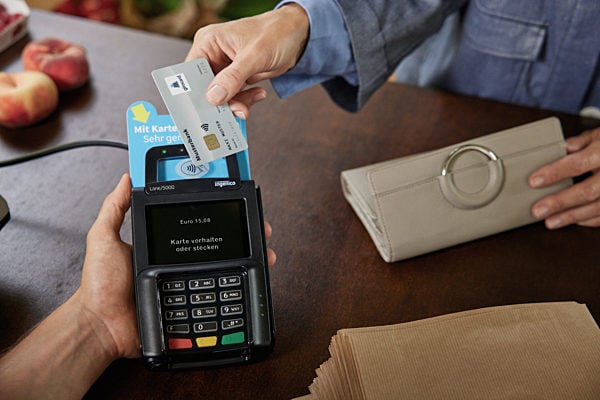Over the weekend it was reported that, with just three months to go until the Brexit transition period ends, the UK has so far not managed to negotiate a continuation of EU banking rules – known as passporting.
This means that all UK banks will need to apply for new banking licences to provide certain services in each of the 27 different EU countries.
And some banks have apparently decided that this is not worth the hassle in certain EU countries and have begun writing to their British customers registered as living abroad to inform them that they will be closing their accounts or cancelling their credit cards.
READ ALSO: Tell us: Brits in Germany – have you been affected by the closure of a UK account?
Here we take a closer look at the situation for British people living in Germany, and other parts of the EU.
Is it all banks?
No, it's important to be clear that there is no blanket closure of accounts for all Brits living abroad, it depends on who you bank with and the type of account you have.
Essentially applying for new licences will create a lot more admin for banks.
Banks already have to do this for many non-EU countries so clearly it is possible to do. But it seems that some banks are deciding that it's not worth the hassle of doing this for all 27 countries in the EU separately, especially ones where they only have a few customers.
READ ALSO: The complete guide to opening a bank account in Germany
As a country that has a large number of British people living here (estimates vary at around 117,000) there is a good chance that some banks will decided that it is worth their while to negotiate a licence with Germany.
Is it all account types?
No. Again, this depends on the type of account you have, with straightforward current/checking accounts less likely to be closed. It could also be the case that certain products become unavailable – for example our sister site The Local France said many Barclaycard customers in France reported being told that they will no longer be able to use their card.
We were also contacted by a Barclaycard customer in Germany who'd been told a similar thing.
Is it only if I use my German address?
Many British people living in Germany use a 'care of' address in the UK for their banking, for example the address of a family member who will forward on all correspondence they receive.
At this stage it seems that only people who have officially changed their address to a German one are receiving letters from their bank.
Can I challenge my bank's decision?
Banks are free to decide what products they offer and to who, but their decisions can be challenged via the Financial Ombudsman Service – find out more about the procedure to file a complaint here.
The UK government told British newspaper The Times that “the provision of banking services is a commercial decision for firms based on a number of factors” so Brits living in the EU probably shouldn't hold their breath for any help from that direction.
READ ALSO: OPINION: 'All certainly has vanished' for British citizens living in Europe
Which banks?
Here's a look at what we know so far. We'll update this as we get more responses from banks.
Santander – the Spanish banking giant said it was keeping the situation under constant review but told The Local: “We have no current plans to close any of our retail [personal banking] or corporate accounts.”
Lloyds – the bank is understood to be closing business accounts – not personal accounts – of customers living in the Netherlands, Germany, Ireland, Italy and Portugal.
A spokesman said: “We have written to a small number of customers living in affected EU countries to let them know that due to the UK's exit from the EU, regrettably we will no longer be able to provide them with some UK-based banking services. We want to keep customers informed and offer advice on next steps.”
Barclaycard – some readers of The Local France and The Local Germany have been in touch to say that they had received letters from Barclaycard telling them that their account would be closed. Barclaycard is separate to Barclays bank and it is understood that Barclays current accounts are not affected, although the company has not commented on the record so far.
What's next?
Understandably, this has caused real worry among British people abroad. We'll report on this more as we get more information. But feel free to share your experiences or concerns by emailing us: [email protected] or filling out this form.



 Please whitelist us to continue reading.
Please whitelist us to continue reading.